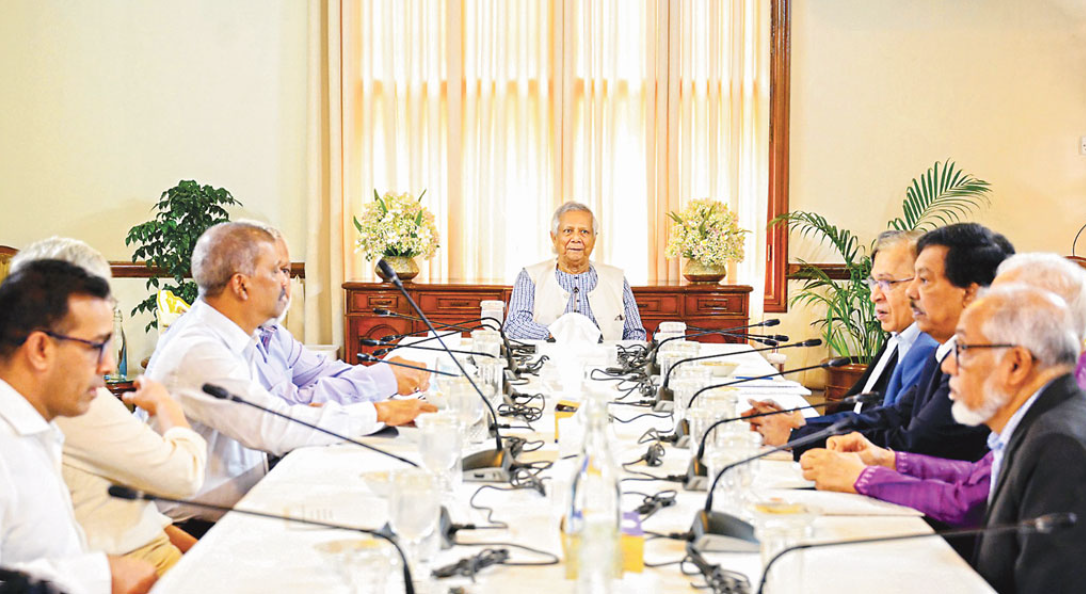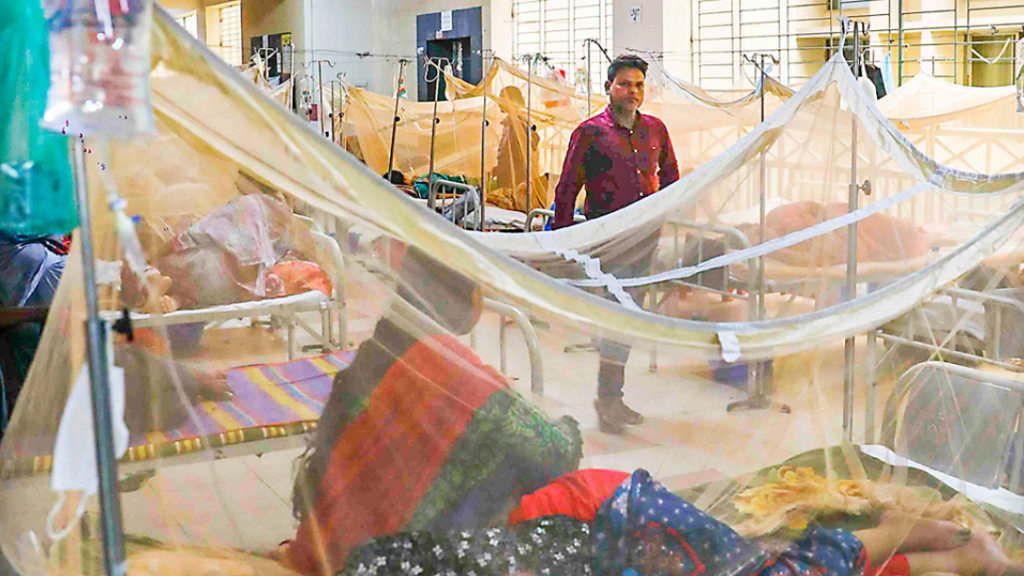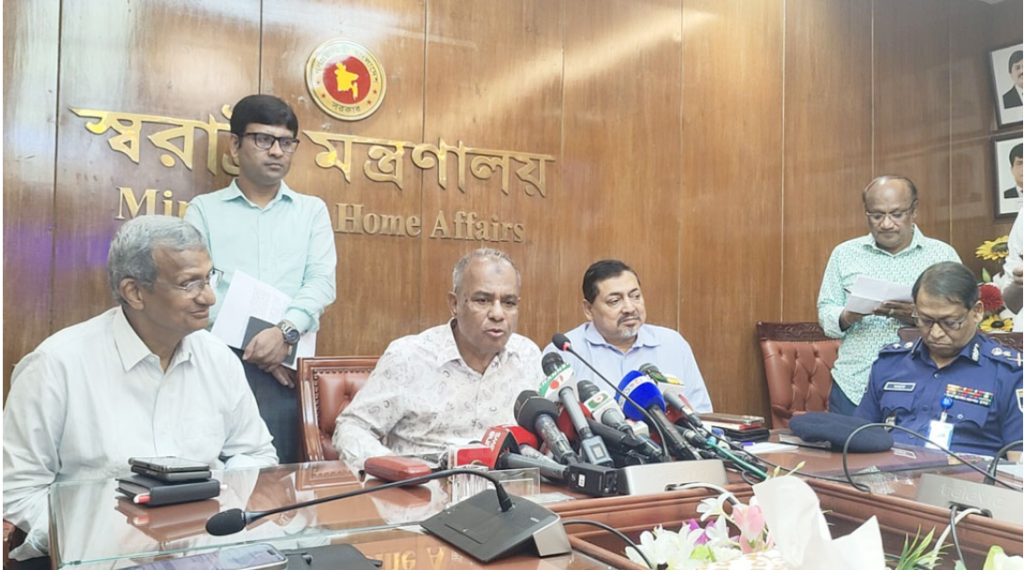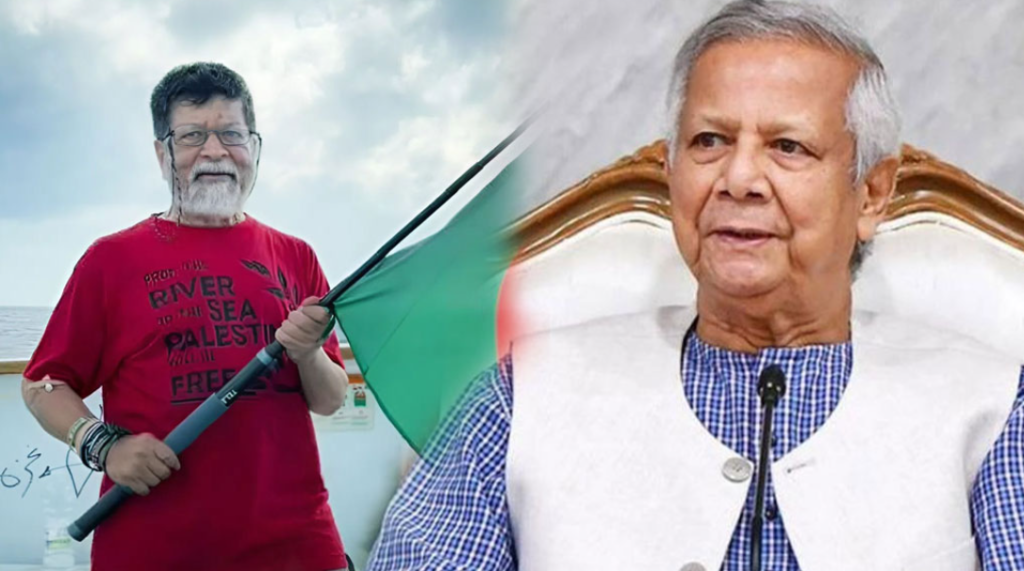Desk Report:
Political parties have agreed to implement the July Charter through a referendum. But there are differences of opinion among them on what the process of that referendum will be.
BNP has talked about holding a referendum on the same day as the national election. However, the party has proposed to resolve the constitutional issues of the charter through the next national parliament.
On the other hand, Jamaat-e-Islami is in favor of implementing the issues through a special constitutional order and holding a referendum before the election. And the National Citizens Party (NCP) says that the legal basis of the July Charter must be ensured before the referendum.
The parties held discussions with the National Consensus Commission for the fourth day on ways to implement the July National Charter at the Foreign Service Academy in the capital on Sunday. There, the parties presented their views on the matter.
The meeting began after 11:30 am under the chairmanship of the commission’s vice-chairman, Professor Ali Riaz. The meeting was adjourned after 5 pm with a one-hour break at noon. The adjourned meeting will be held on the afternoon of October 8.
At the beginning of the discussion, the commission did not put forward any proposals to the parties to implement the July Charter; rather, the leaders of the parties expressed their party positions. Most of the parties there supported a referendum to implement the July Charter. Several parties, including BNP, spoke of a referendum on a separate ballot on the day of the national election. At the same time, they supported keeping their objections (notes of dissent) in the referendum.
Jamaat first called for a constitutional order for the legal basis of the July Charter and then a referendum before the national elections. However, they were not in favor of mentioning the objections.
NCP demanded a legal framework for the July Charter before the referendum. At the same time, the party supported giving the elected National Parliament a dual role, including constitutional reform. The parties of the Democracy Platform also have support on this issue.
After the meeting, the Vice-Chairman of the National Consensus Commission told reporters, “It is important to ensure public participation for the implementation of the July National Charter. All political parties have agreed to hold a referendum for their consent. We see this as the first major step in the implementation process.’
In the National Consensus Commission meeting held on September 16, BNP had suggested seeking the opinion of the Supreme Court as per Article 106 of the Constitution to resolve the July Charter-related issues. At the same time, the party also said that a referendum should be held after resolving the constitutional issues of the charter of the next elected parliament. BNP changed its position on the referendum in yesterday’s meeting. Salahuddin Ahmed, a member of the party’s standing committee, opined that there is no need to seek the opinion of the Supreme Court as per the constitutional order and Article 106 of the Constitution. He said, ‘If a referendum is held on the day of the national election, there will be no need to seek the opinion of the constitutional order or the Supreme Court. Because the people are supreme. This government does not have the authority to issue constitutional orders. If they had, they could have amended the constitution without discussion.’
Salahuddin Ahmed said that a referendum should be held on the July Charter on a separate ballot on the day of the national election. In that case, he believes that implementation will be mandatory if the public vote is in favor. Salahuddin Ahmed said, ‘A verdict of sovereign power will be reflected there.’ On the basis of which, the BNP leader believes that the next National Parliament will get a popular vote on constitutional reform. The party is in favor of implementing the constitutional recommendations of the Charter through an elected parliament.
Stating that there is no power of referendum in the country’s existing constitution, Salahuddin said in yesterday’s morning session that if a referendum is to be held, the constitution does not have to be amended. Only the RPO needs to be amended and the EC given the power to organize a referendum.
Earlier in the discussion, Jamaat-e-Islami Assistant Secretary General Hamidur Rahman Azad said, ‘Since not everyone can agree, these can be put to a referendum. They will accept the verdict given by the people. The constitution will be strong if it is through an order. There can be further discussion on the referendum process. It is very easy to amend the RPO, he agrees with Salahuddin Ahmed’s proposal in this regard.
Hamidur Rahman said, ‘The process of implementing the Charter will remain within the Charter. There will be a referendum on whether the July Charter will be accepted or not. The national election will be held on that basis. Let the referendum be held first.’
Azad believes that a referendum can be held in November or December before the February vote. He said that if the referendum is held, there is no obstacle to holding the February election.
Regarding the note of dissent, Jamaat lawyer Shishir Monir said that dissent or descending force is not binding. The judges gave a 4:3 verdict in the caretaker government case. There, the caretaker government system was canceled by the decision of four people.
In the discussion, NCP joint convener Javed Rasin said that before the referendum, the July Charter must be brought into a legal framework. It must be specified, what will happen within how many days. The next election will not be like other national elections, it will be different. Their basic task will be to bring fundamental changes. He said that first, the Constitution Order or LFO, whatever it is called, must be announced. The people elected in the parliamentary elections will play a dual role. Constitutional reform will be under their jurisdiction.
Commission Vice-Chairman Professor Ali Riaz told reporters that new proposals have also been made in discussions regarding the structure of the new legislature formed after the parliamentary elections. He said, “The legislature that will be formed through the February elections should be given such characteristics that the proposed constitutional amendments based on the July Charter can be easily completed. The political parties are practically in agreement on this issue as well.”
Commission members meet with the Chief Advisor
Progress of the Commission’s work was reported
Yesterday at 10 am, the commission members met with the chief advisor and commission president Dr. Muhammad Yunus at the state guest house Jamuna. In this regard, Ali Riaz said that the chief advisor Professor Yunus has been informed about the progress of the commission. The chief advisor urged to finalize the recommendations quickly.
Professor Ali Riaz said that the commission is hopeful of finalizing the recommendations and submitting them to the government by October 15. In the meantime, the names of representatives from three-fourths of the 30 parties involved in the discussions have also reached the commission.
According to the meeting sources, the chief advisor instructed the commission to work quickly, keeping in mind the issue of not disrupting the February elections announced by the government based on the July charter. On the other hand, the commission has asked the chief advisor to decide on the means of implementation if the political parties do not agree on the implementation of the July charter. The chief advisor was advised to take a firm stand on the issue.




